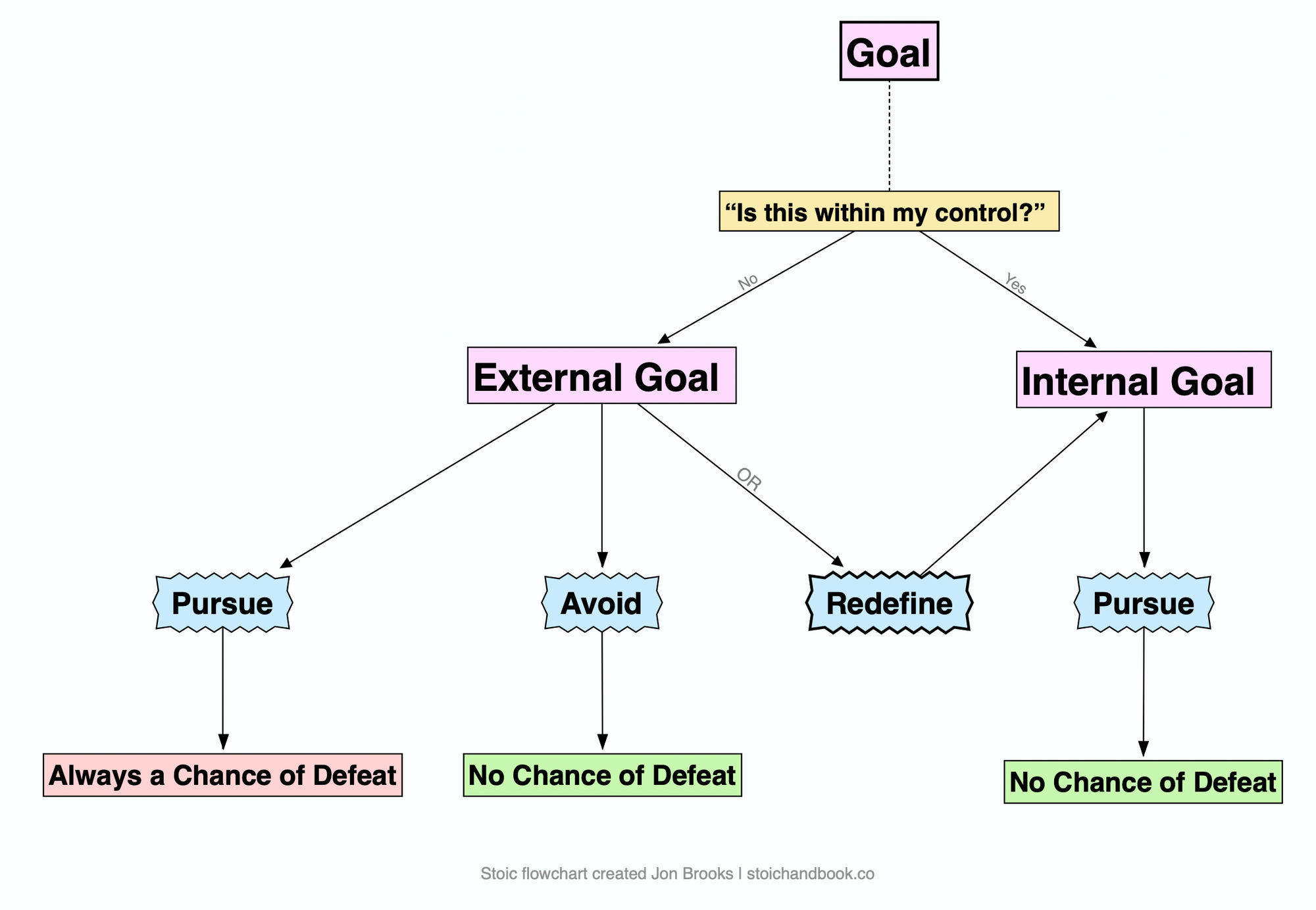Enchiridion Chapter 19 / 53
So many of us in modern society feel envy or jealously when we see other people with more money or status than us.
On a day to day level, it's very common for us to feel intense frustration and anger when things don't go our way or we "fail" at certain tasks.
From Epictetus' perspective, such experiences are the result of foolishness.
In particular, the lack of understanding two key concepts:
- By investing in things outside of our control, we are doomed to suffer
- By valuing external things above one's character, we sacrifice our own character
By following the advice in this post, you will free yourself from so many unnecessary defeats and losses, which are subject to the whims of fortune.
I/ Avoid External Contests
When you have a goal to achieve something externally, and you don't get it, this can be described as a "defeat."
Imagine a game of tennis. When playing, one player attempts to win by playing according to the rules and ending the match with a higher score than their opponent.
If this doesn't happen, they experience defeat. If they win the match, they experience success.
This is the way the vast majority of humans conceptualise life.
Defeat, however, can be eradicated entirely from your life.
You just have to do one simple thing:
Avoid contests whose outcome is outside of your control.
This doesn't mean you avoid contests in the general sense, i.e. never playing a game of tennis again.
It means that you no longer play the same game as your opponent. Trying to get a higher score than them is outside of your control, and so playing such a game would almost guarantee experiencing defeat and more importantly violate The Dichotomy of Control.
II/ Define Your Own Rules
The right solution is to decide on the rules of the contest but do not include externals, which are subject to changes in fortune.
In a tennis match, your opponent might get lucky, or you might stumble, or the wind could blow in unexpected ways that causes your score to be lower than your opponent's by the time the match is over.
But you can enter into a tennis match, where the objective is not to attain an external outcome, but to attain an internal one—something that is within your control.
You can, for example, decide that playing as well as you can is all you can do, and therefore a win regardless of any external outcome.
Avoid contests whose outcome is outside of your control, but savour contests whose outcome is within your control.

III/ Good Character is the Only True Success
In life, it can be very tempting to see someone with status, power, good looks, money, etc., and to conclude that they must be happy because of this.
It is so easy to feel envious when using social media because so many people appear to have many external things that we don't possess.
But happiness does not come from external things, and investing your emotions in external things as we've seen, will inevitably lead to experiences of defeat.
Happiness is within us and is the result of good character. Those of us who are wise recognise this, and therefore don't have any reason to experience jealously or envy when we see others who have more than us.
Those of us who still feel jealousy and envy, would be advised to see the arising of these emotions as an opportunity to remember to avoid entering contests whose outcome is outside of our control.
The wise person is concerned with being free, not in being chained to externals and stuck in a cycle of stressful wins and losses.
ENCHIRIDION CHAPTER NINETEEN, EPICTETUS, TRANSLATION BY ROBERT DOBBIN:
[1] You will never have to experience defeat if you avoid contests whose outcome is outside your control. [2] Don’t let outward appearances mislead you into thinking that someone with more prestige, power or some other distinction must on that account be happy. If the essence of the good lies within us, then there is no place for jealousy or envy, and you will not care about being a general, a senator or a consul – only about being free. And the way to be free is to look down on externals.
